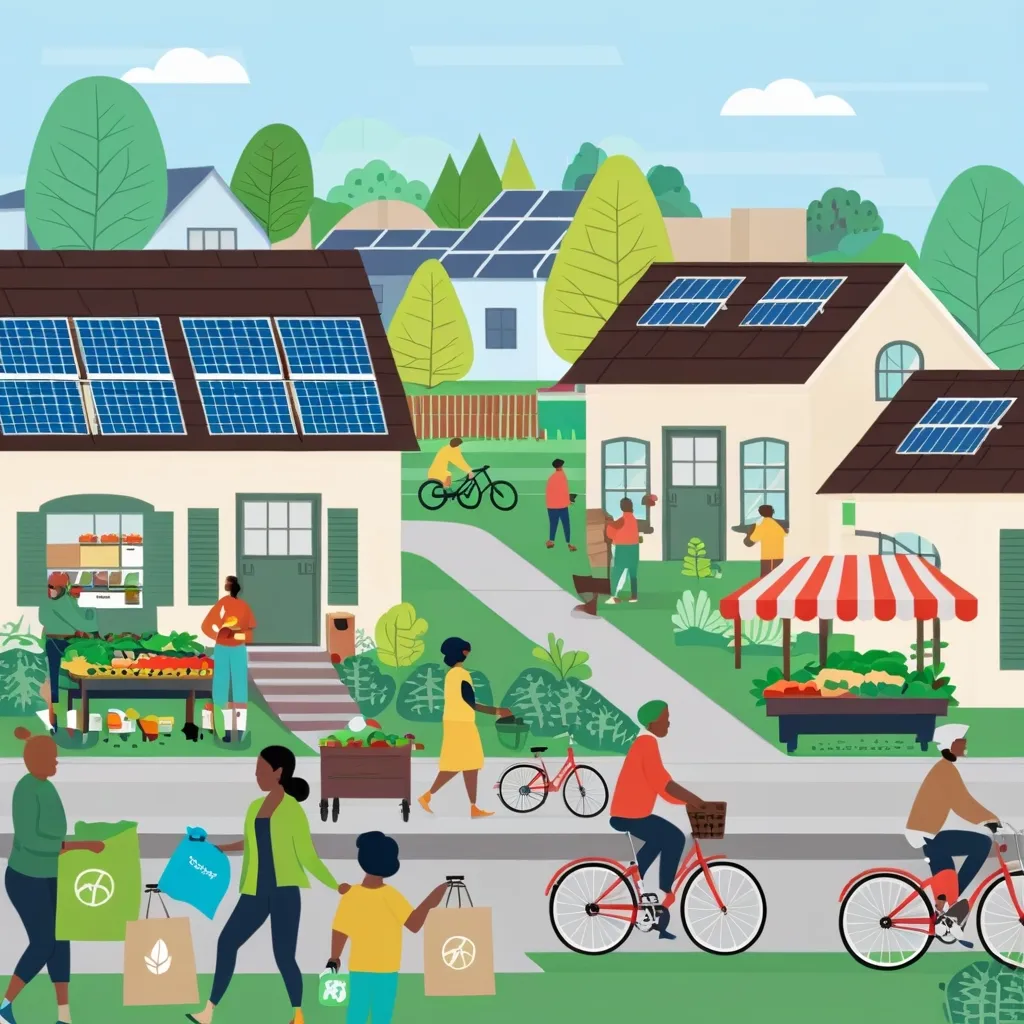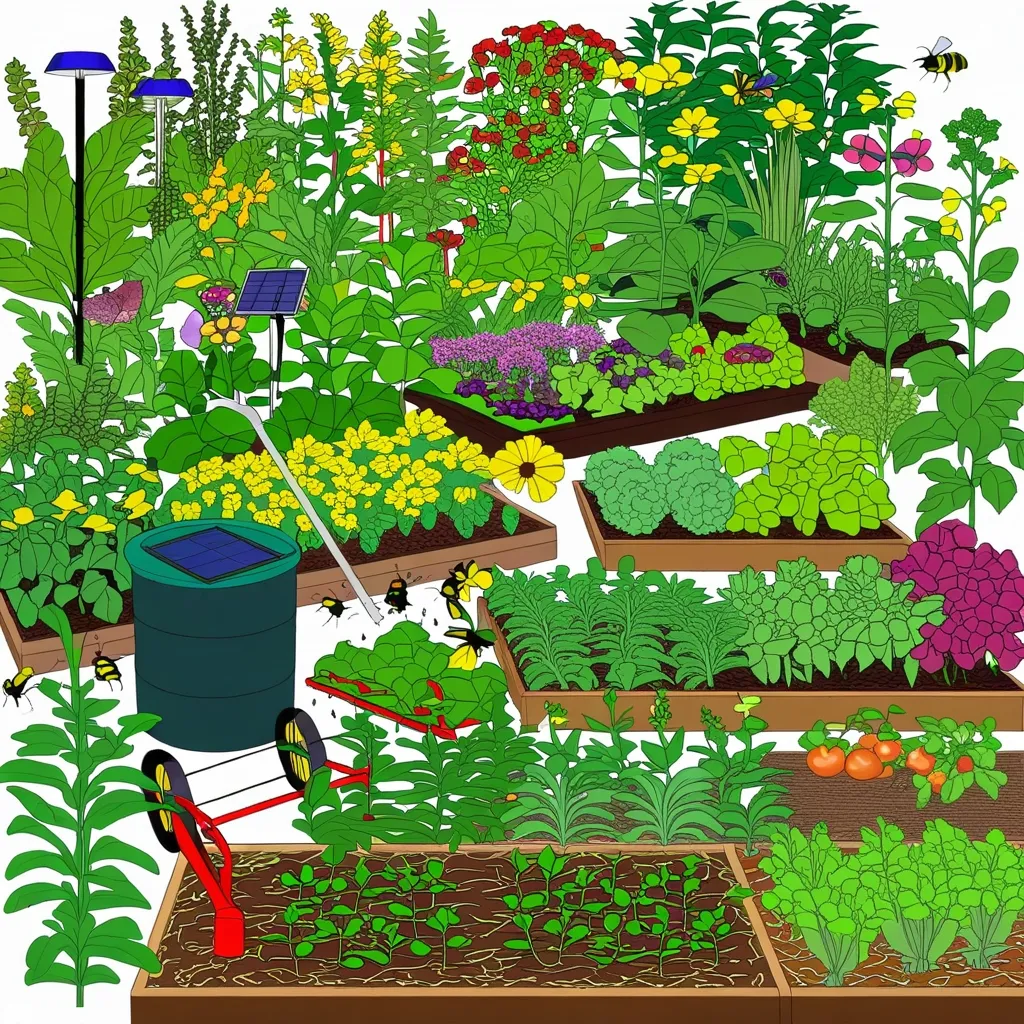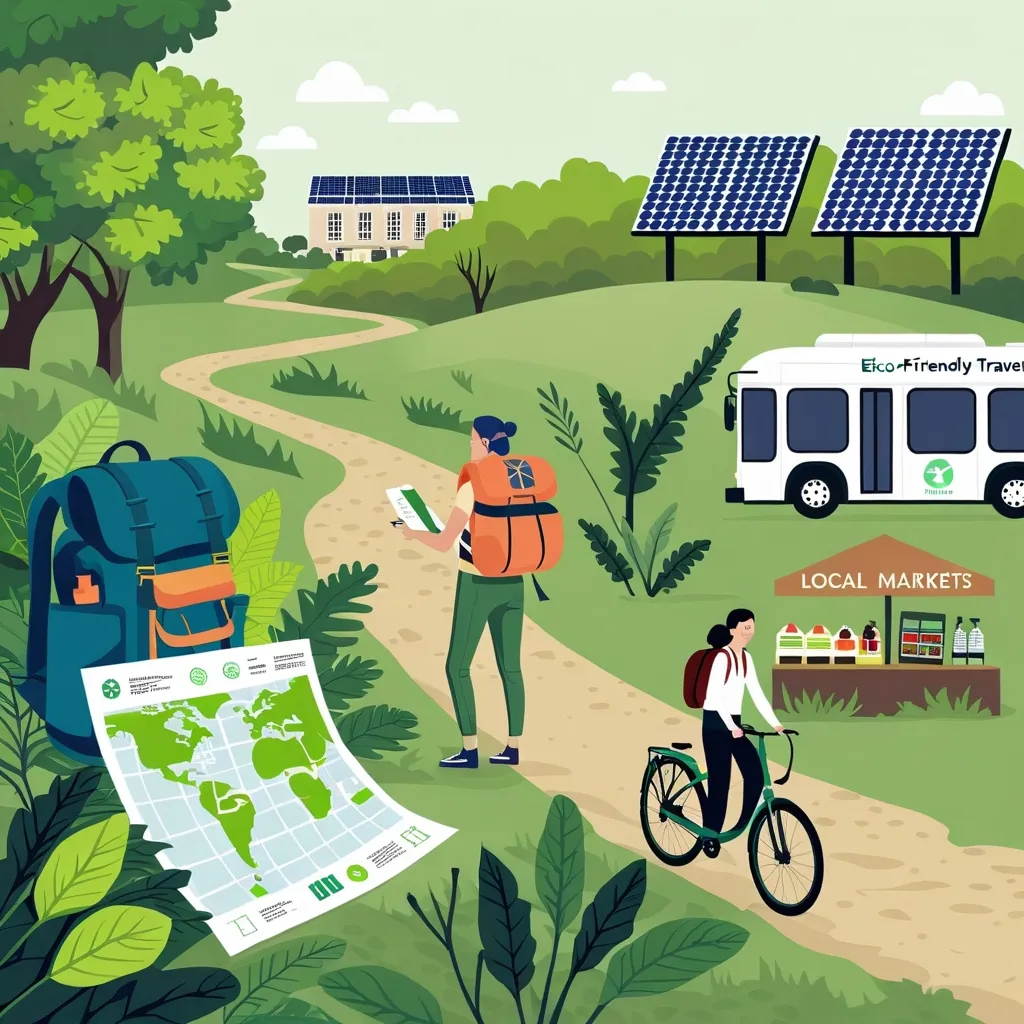Living more sustainably and cutting down on your carbon footprint is all about making simple, everyday choices that add up. Not only does it help the environment, but it can save you money and even improve your quality of life. Let’s dive into some easy ways you can make a difference.
Switching up your diet is one of the easiest ways to start. Eating lower on the food chain is a great move. Focus on fruits, vegetables, grains, and beans. These foods need fewer resources and create less waste compared to meat production. Maybe try out meatless Mondays or hit up your local farmers’ markets for fresh, seasonal goodies. It’s not just better for the planet, it’s healthier for you too.
Water conservation is a biggie. Producing the food we eat, the energy we use, and the products we buy takes a ton of water. Little habits like shutting off the tap while brushing your teeth or taking shorter showers can make a world of difference. Also, watering your plants either early in the morning or late in the evening cuts down on evaporation, and using cold water for chores can save a lot of energy.
Want to make a quick and easy change? Swap out those old, energy-guzzling incandescent bulbs for energy-efficient CFLs or LEDs. They use way less energy and last a lot longer, which saves you money in the long run and keeps your home cooler.
Transportation is a huge source of greenhouse gas emissions. Instead of driving everywhere, think about biking, walking, or carpooling. For longer trips, trains and buses are more eco-friendly compared to cars and planes.
Getting into the habit of reusing items can really cut down your carbon footprint. Take reusable shopping bags to the store, carry a reusable mug for your coffee, and pack your lunch in reusable containers. These small actions save money, energy, and natural resources. And, of course, don’t forget to recycle whatever you can—paper, plastics, glass, even electronics.
Try composting to reduce waste and create great soil for your garden. Composting food scraps can drastically cut down on what you send to the landfill. Planning your meals and only buying what you need can also help minimize food waste and save you money.
Living closer to work and amenities can make a big difference. In dense cities, homes are often smaller and public transportation is more available. By moving closer to where you need to be, you can walk, bike, or use public transport more often, cutting the need for a personal vehicle.
Insulating your home and investing in renewable energy like solar panels can have a massive impact. Keeping your thermostat set to a moderate temperature and sealing air leaks can save a ton of energy. Solar panels, whether on your own home or through a community program, help switch your energy use from fossil fuels to clean, renewable sources.
Think about buying things second-hand. It saves you money and reduces the demand for resource-heavy new products. Look for second-hand clothes, furniture, and electronics. When you do buy new, aim for products made from recycled materials or those with eco-labels.
Your digital habits can also have an impact. Unplugging devices that aren’t in use can avoid phantom power consumption, and being mindful about what data you store in the cloud can save energy too.
Taking good care of your belongings so they last longer is another easy step. Repair old items instead of replacing them, repurpose what you can, and use reusable cleaning products instead of disposables.
When it’s time to replace appliances, make sure to choose energy-efficient models. They use less energy and will reduce your utility bills.
Supporting mixed-use zoning and better public transit in your community can encourage more sustainable living. These initiatives make it easier and more practical for people to walk, bike, and use public transportation.
Conserving paper is another easy win. Print on both sides, save single-sided pages for notes, and only print what you really need. These habits help cut down on paper waste.
Walking or biking instead of driving not only reduces your carbon footprint but also gives you some exercise. Taking the stairs instead of the elevator is another way to stay active while saving energy.
Tweaking your thermostat settings can make a big difference too. Keeping your home at a moderate temperature and using a programmable thermostat can save a lot of energy and money.
Incorporating these simple changes into your daily routine can significantly reduce your carbon footprint and help create a more sustainable future. Every little action counts, and small efforts, when combined, can lead to massive positive change. Start today and inspire others to do the same. Together, we can ensure a healthier planet for future generations. Let’s all do our part and make a difference.






